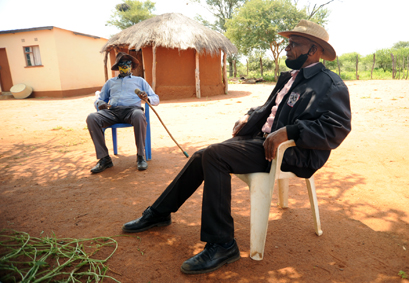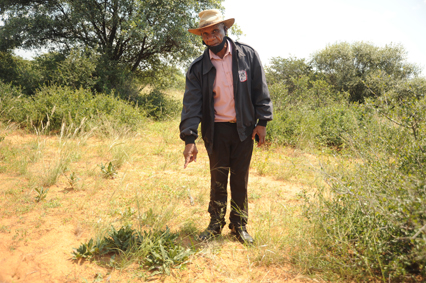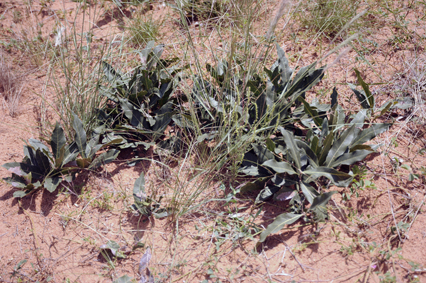Mogau - farmers source of heartache
22 Mar 2021
Cattle ownership is a source of pride for Batswana and has remained at the fore as a means of survival for many families for ages.
Despite the evolvement of several other modern ways of eking out a living that Batswana have since embraced, the status quo on the value of cattle remains unchanged for scores of families.
For individuals and families who still hold cattle rearing dear and close to their hearts, it is often heart-wrenching to deal with circumstances that threaten the viability of their cattle rearing ventures regardless of whether they keep the animals on a commercial or subsistence basis.
Although challenges affecting the cattle rearing sub-sector are extensive and vary from area to area, most cattle owners remain resolute in their endeavour to get the most out of their livestock.
In Dovedale in the Mahalapye Sub-district, cattle owners have, for decades, fought an unrelenting war against mogau, a poisonous plant that has from time to time made cattle rearing in their locality a mammoth task.
The village’s tribal leader, Kgosi Ditodi Namane recalls how in a bid to save their cattle, residents erected a fence around a portion of their grazing land where mogau grows, the motive being to keep the animals away from the poisonous plant.
Put up back in the 1980’s with government’s assistance, the fence has over the years given Dovedale cattle owners some reprieve, saving them from the anguish that most of them suffered each year before the onset of the rainy season.
According to Kgosi Namane, mogau plant, an often small bushy plant with thin pointed leaves, sprouts in summer and it is at this time before the rains that it is at its peak of being poisonous and highly lethal.
“This deadly plant has brutalised us for decades. The fence does help but because it is poorly maintained we still lose our cattle to this plant each year,” he lamented, and partly blamed the state of the fence on the reluctance of some cattle owners to participate when called forth to come and help maintain the fence.
“Mogau fa o go bifetse o itaya lesaka o le fetsa o bo o tlogela marole fela. Jaanong re le barua-kgomo ba kgaolo e, re ka bo re ema ka dinao re tshwaraganela go tsosa terata e,” he said, imploring fellow cattle owners in Dovedale to each contribute to efforts to keep the fence cordoning off the deadly plant in a good state.
While the fence has clearly eaten off a chunk of their grazing land, Kgosi Namane reckons that the benefits they were reaping from having it in place far outweighed the temporary loss of part of their grazing land.
“This plant is poisonous for only a limited time in a year, and once the rains fall, especially in good years when we receive good amounts of rainfall, mogau quickly loses its toxicity and cattle can graze around freely,” he opined.
A farmer, 75-year-old Mr Petrus Noge, who has throughout his adult life kept his livestock at Sekwaba cattlepost, just outside Dovedale describes mogau as a decades-old problem in the area.
Like Kgosi Namane, he knows the plant to lose its deadliness during the rainy season.
“Setlhatsana se se tshaba metsi, fa pula e na e le boketenyana se swa bogale,” he pointed out.
Mr Noge has over the years of his stay at Sekwaba seen farmers flee the area after their cattle were ravaged by mogau, some cattle owners abandoning their boreholes in the process.
According to him, the remedy when cattle have eaten mogau was to not water them for at least two days, something that he believes prevents the poison from the plant from intensifying in toxicity.
Having at some point lost 10 cows at once, the old man ensures that his cattle graze away from the danger zone each year when the plant is at its most lethal.
His wife, Ms Boithatelo Noge likens mogau to drought as it too like the latter could wipe out an entire herd of cattle in an instant.
She recalls a story being told to date of one cattle owner who lost most of his cattle to the menacing plant in one instance.
The farmer in question, it is said, broke down in tears when veterinary officers asked him how many cattle he had lost when they had come to assess the severity of the calamity that had befallen him.
According to Dr Kesegofetse Setlhako, a Mahalapye-based veterinary officer, the sudden death due to cardiac arrest after consumption of mogau was attributable to sodium fluoroacetate, a chemical substance found in the plant.
The chemical substance is said to inhibit cellular respiration and consequently causes cardiac arrest in livestock
The mogau plant has been found to be problematic in most parts of the country, particularly in dry, sandy and acidic soils.
Dr Setlhako ascertained that the plant was indeed highly toxic, and indicated that while it could kill other domestic animals such as sheep and goats as well as wild animals, it affected mainly cattle due to their bulk grazing habit which made them to be less-selective in their grazing.
Humans too, the veterinary officer cautioned, should steer clear of the deadly plant.
“It is not safe for people to consume meat from animals killed by mogau as the poison in the animal tissue can be detrimental to human health too,” he emphasised.
Given these insights, Dovedale farmers and others elsewhere in the country where mogau is prevalent should collaborate with veterinary officers in their areas to receive information on how to manage the situation and minimise loss of livestock to the plant. ENDS
Source : BOPA
Author : Keonee Kealeboga
Location : DOVEDALE
Event : Interview
Date : 22 Mar 2021








